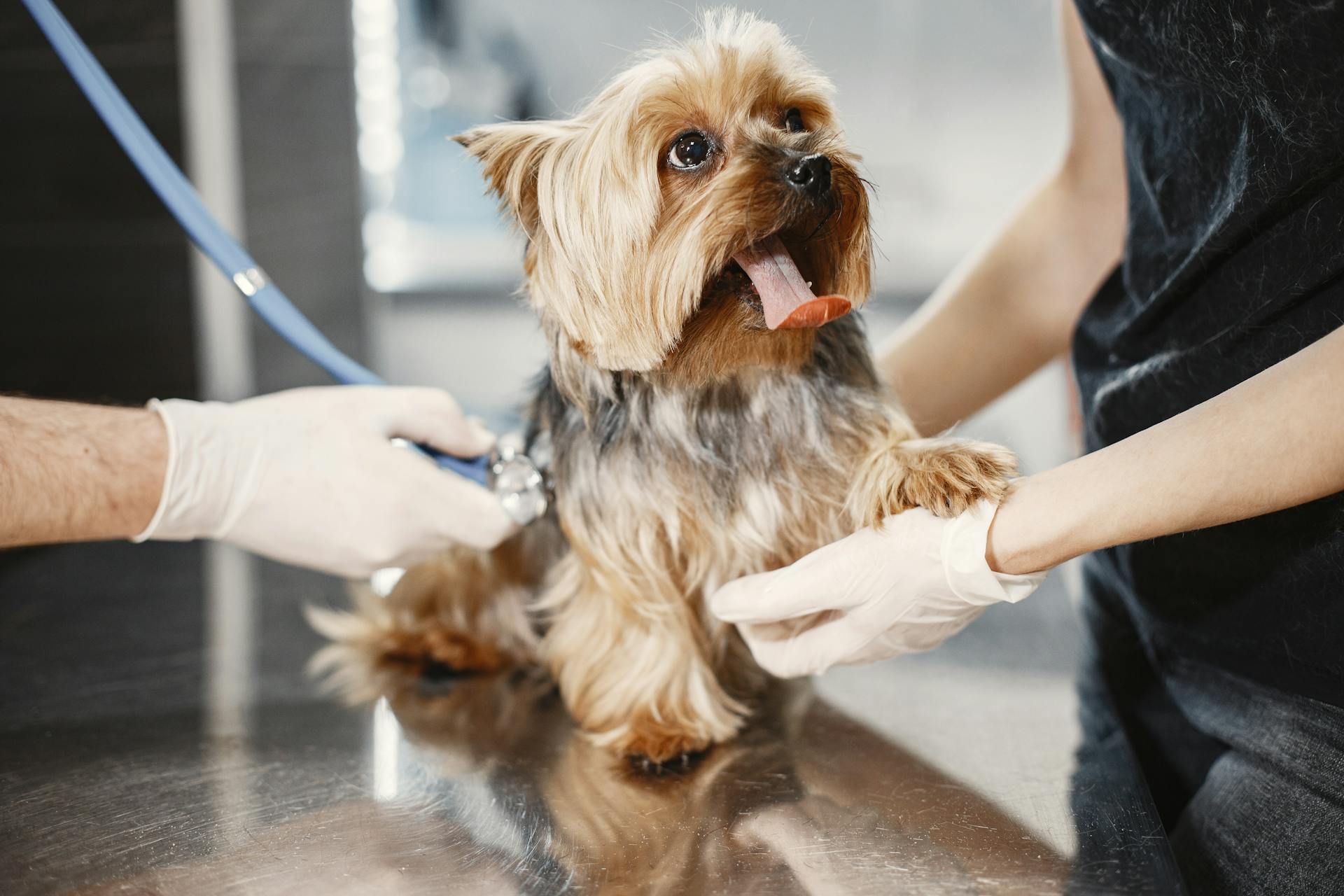Is There Any Pet Insurance That Covers Pre-Existing Conditions? Exploring Options – FangWallet

This article may contain references to products or services from one or more of our advertisers or partners. We may receive compensation when you click on links to those products or services. Nonetheless, our opinions are our own.
Key Highlights
- Most pet insurance plans do not cover pre-existing conditions, especially those classified as incurable.
- Certain insurers may cover “curable” conditions after a symptom-free waiting period.
- A pre-existing condition is any health issue your pet experienced before the insurance policy started or the waiting period ended.
- Definitions of “curable” vary among insurers, including issues like infections or healed injuries.
- Carefully read policy documents and ask specific questions about coverage details.
- Enrolling in pet insurance early can improve coverage options and potentially reduce costs.
Introduction
Owning a pet is a rewarding experience, but unexpected veterinary bills can strain your finances. Pet insurance offers valuable protection, but navigating the complexities of pre-existing conditions can be challenging. This guide explores how pet insurance treats pre-existing conditions and offers tips for finding the best coverage for your furry friend.
Understanding Pre-Existing Conditions in Pets
A pre-existing condition refers to any health issue your pet had before enrolling in a pet insurance policy or before the waiting period ended. These could range from minor issues, like an ear infection, to major chronic conditions such as diabetes or hip dysplasia.
Most pet insurance providers do not cover these conditions to mitigate financial risk. However, some companies make exceptions for curable pre-existing conditions if your pet has been symptom free for a specific period.
Curable vs. Incurable Conditions
- Curable Conditions: These are temporary issues that have been treated and resolved, such as ear infections, respiratory infections, or minor injuries. Some insurers may provide coverage after a defined symptom-free waiting period (e.g., 6-12 months).
- Incurable Conditions: Chronic or permanent conditions like diabetes, arthritis, or heart disease are typically excluded from coverage under most policies.
Definitions and policies regarding curable and incurable conditions vary by insurer, highlighting the importance of carefully reviewing each policy.
Common Pre-Existing Conditions and Their Impact
Here are some common health issues often categorized as pre-existing conditions:
- Hip Dysplasia: Common in large dog breeds, this genetic condition often disqualifies coverage for related treatments.
- Heart Disease: Frequently seen in older pets, this chronic condition is unlikely to be covered once diagnosed.
- Kidney Disease: Prevalent among senior cats, this is another common exclusion.
Certain conditions, such as a torn cruciate ligament, may lead to bilateral exclusions. For instance, if one leg suffers a ligament injury, the other leg may not be covered, even if it is healthy.
Finding the right insurance for a pet with pre-existing conditions requires research, persistence, and careful evaluation.
Identifying Insurers That Consider Pre-Existing Conditions
While most insurers exclude pre-existing conditions, some are more lenient about curable issues. For example:
- Certain providers may cover respiratory infections with no recurring symptoms within a year.
- Others might exclude bilateral conditions but cover unrelated future illnesses or injuries.
Evaluating Policies: What to Look For
When comparing insurance policies, focus on the following factors:
- Waiting Periods: Shorter waiting periods for curable conditions are generally more favorable.
- Bilateral Exclusions: Check weather conditions affecting one side of the body result in exclusions for the other side.
- Reimbursement Rates and Deductibles: Ensure the plan’s financial structure aligns with your budget and expected veterinary costs.
Beginner’s Guide to Finding Pet Insurance
Follow these steps to identify the best coverage for your pet:
Step 1: Assess Your Pet’s Health History
Review your pet’s medical records to identify past and current health conditions. Understanding your pet’s risk profile will help you identify relevant exclusions or limitations.
Step 2: Research Insurers’ Stance on Pre-Existing Conditions
Compile a list of potential insurers and investigate their policies on curable and incurable conditions. Directly contacting insurers for clarification can provide valuable insights.
Step 3: Compare Plans and Coverage Options
Analyze policies side by side to compare:
- Coverage limits for illnesses and injuries
- Deductible amounts and annual caps
- Reimbursement rates
Look for flexible policies while aligning with your pet’s medical needs.
Step 4: Request Personalized Quotes
Contact insurers for customized quotes based on your pet’s breed, age, and health history. Ensure all disclosed health conditions are accurately reflected in the quote.
Step 5: Make an Informed Decision
Select a plan that balances affordability with comprehensive coverage. Even with exclusions for pre-existing conditions, having coverage for future illnesses and injuries is invaluable.
Conclusion
While pre-existing conditions often limit coverage, researching your options thoroughly can help you find a policy that meets your needs. You can secure the best possible insurance plan by understanding your pet’s medical history, evaluating insurers’ policies, and asking the right questions. Even limited coverage can offer significant financial protection for unexpected health issues.
Frequently Asked Questions
Can Pre-Existing Conditions Ever Be Covered?
Some insurers may cover curable pre-existing conditions after a symptom-free waiting period. Incurable conditions are rarely covered, but continuous coverage may improve eligibility for certain benefits.
How Do Insurers Verify My Pet’s Medical History?
Insurers often request veterinary records and may require a health check-up to evaluate your pet’s condition at enrollment.
Are There Alternative Options for Pets with Pre-Existing Conditions?
Yes. Wellness plans, pet savings accounts, and charitable organizations can provide financial support for routine care and existing conditions.
What Should I Consider Before Choosing a Plan?
Focus on waiting periods, exclusions, reimbursement rates, and deductibles. Assess how each plan fits your budget and your pet’s health needs.

Reviewed and edited by Albert Fang.
See a typo or want to suggest an edit/revision to the content? Use the comment form below for feedback.
At FangWallet, we value editorial integrity and open collaboration in curating quality content for readers to enjoy. Much appreciated for the assist.
Did you like our article and find it insightful? We encourage sharing the article link with family and friends to benefit as well – better yet, sharing on social media. Thank you for the support! 🍉
Article Title: Is There Any Pet Insurance That Covers Pre-Existing Conditions? Exploring Options
https://fangwallet.com/2024/12/28/is-there-any-pet-insurance-that-covers-pre-existing-conditions/The FangWallet Promise
FangWallet is an editorially independent resource – founded on breaking down challenging financial concepts for anyone to understand since 2014. While we adhere to editorial integrity, note that this post may contain references to products from our partners.
The FangWallet promise is always to have your best interest in mind and be transparent and honest about the financial picture.
Become an Insider
Editorial Disclaimer: The editorial content on this page is not provided by any of the companies mentioned. The opinions expressed here are the author’s alone.
The content of this website is for informational purposes only and does not represent investment advice, or an offer or solicitation to buy or sell any security, investment, or product. Investors are encouraged to do their own due diligence, and, if necessary, consult professional advising before making any investment decisions. Investing involves a high degree of risk, and financial losses may occur including the potential loss of principal.
Advertiser Disclosure: This article may contain references to products or services from one or more of our advertisers or partners. We may receive compensation when you click on links to those products or services.
Source: Is There Any Pet Insurance That Covers Pre-Existing Conditions? Exploring Options – FangWallet




